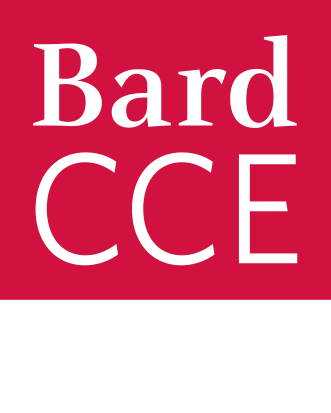Words of Advice to Young Bardians: How to Get a Job
By Miriam Roday '18
When you’re starting your career, people will often say, “getting a job is all about who you know.”For students fresh out of college, this may sound impossible. You have probably been consumed with schoolwork for the past four years or your resumé consists of babysitting gigs you took to earn extra money. You likely didn’t have the time to get to know a lot of people and network for a job.
The first step is simple: start talking.
Your top priority should be setting up informational interviews. Your goal is to find out exactly what a job entails by asking targeted questions. Use these “informationals” as a way to collect insights other people have gleaned that you can integrate into your planning for the future. When hearing about another person’s experience, you’ll naturally begin to reflect on your own. You may realize—I like the idea of working a 9–5 job, or I wouldn’t mind disrupting my routine for a monthly business trip.
Treat it like a job interview: Take it seriously, but don’t go into it thinking that it’s a test and if you pass, you’ll leave with a job offer (of course, that has happened before, so bring your A-game). Instead, you should note the decisions another person made that helped them succeed. The lessons they share will inform your thinking as you determine the job you’re best suited for right now.
Here are five steps to get started.
-
Pick on friends and acquaintances first
-
Prep for the informational
-
Ask questions and engage
- How did you enter this field?
- What was your job interview like and how did you prep for it?
- Can you describe a typical work day?
- What is the most rewarding or challenging part of this work?
- What previous experience do you have that helped you succeed?
-
Keep track of your contacts
-
Follow up
Pro networking tip: Keep the conversation going! Check-in with your contacts periodically. If you have an exciting life update—you were published or got into grad school—tell them about it. This will keep you fresh in their minds and hopefully invest them in your professional growth.
When you interview for a job, you still need to demonstrate that you’re the right fit for an organization. But if you’ve done your networking, when a job comes along, people in a position of power will remember you. They’ll tell the hiring manager to pull your resumé out of the pile. They’ll vouch for your intellect, your value, and your potential to contribute because they know you and what you’re capable of.
It’s all about who you know
Getting a job requires a lot of research, patience, and hard work. When people say “it’s all about who you know,” what they mean is, it’s all about putting in the work to get to know others and letting them get to know you. At the end of the day, those who cultivate robust professional networks do so by actively creating opportunities to connect with others.
Miriam Roday is a researcher with the Joint Advanced Warfighting Division of the Institute for Defense Analyses. She is a fellowship editor for Young Professionals in Foreign Policy. She began her career at 19 in the U.S. Senate and has since held positions across the public and private sectors including with non-profit organizations, congressional committees, political campaigns, and research institutions.
The opinions expressed here should not be construed as representing the official position of the Institute for Defense Analyses, the Department of Defense, or the U.S. government.
Miriam graduated from Bard in December 2018. She was part of the first class to graduate as a Global and International Studies major and wrote her Senior Project on Russia's efforts to interfere in the 2016 U.S. presidential election. She also participated in BGIA, where she secured a paid internship at the International Crisis Group working in their legal department.
Miriam co-organized the Student World Affairs Conference in 2017 and presented on a panel about "Global Citizenship" at the Smolny Student Conference in St. Petersburg. That same year, she applied for and won a Community Action Award for her internship on Capitol Hill and received another Award for her internship at Stanford University the following summer. As a freshman, Miriam co-founded a TLS project, Sail Forward, and taught Speech & Debate and Civics at Germantown Middle School. During her time at Bard, she also worked at the Learning Commons as an ESL tutor.
Post Date: 07-27-2021
